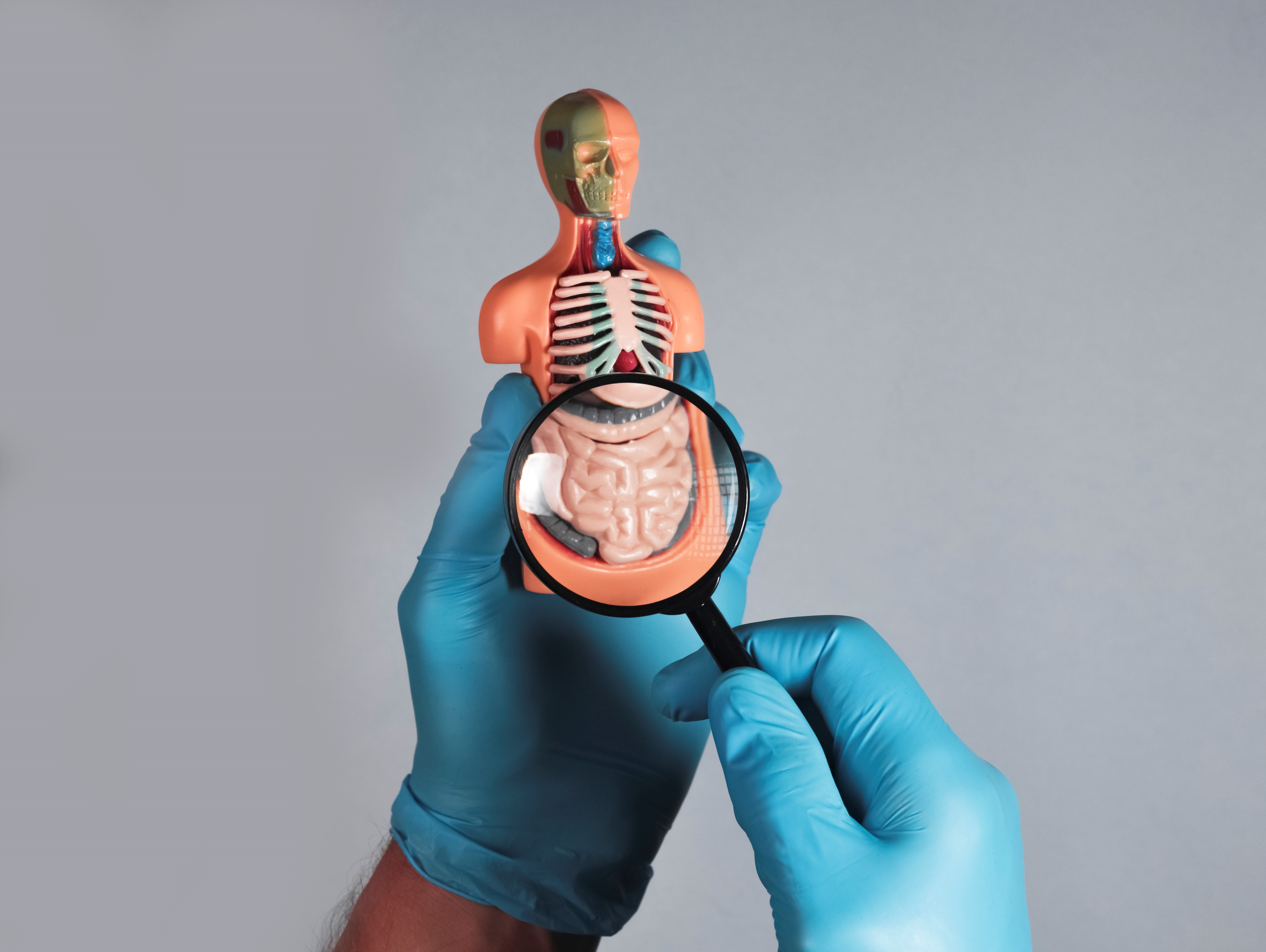Crohn's Clinical Trials
Crohn's Disease: Advancing Research and Care

At FOMAT Medical Research we are committed to finding new treatments for Crohn’s Disease through clinical trials. We help those looking for new therapies and bring together clinical research to advance the understanding and management of this chronic condition.
Understanding Crohn's Disease

What is Crohn’s Disease
Crohn’s Disease is a chronic inflammatory condition of the gut, part of inflammatory bowel diseases (IBD) which also includes Ulcerative Colitis. Unlike Ulcerative Colitis which is limited to the colon and rectum, Crohn’s Disease can affect any part of the digestive tract from mouth to anus. The inflammation can go through multiple layers of the intestinal walls and cause a range of symptoms and complications
Crohn’s Disease is a chronic inflammatory condition of the gut, part of inflammatory bowel diseases (IBD), including Ulcerative Colitis. It can affect any part of the digestive tract from mouth to anus and cause a range of symptoms and complications.
Crohn’s Disease is a chronic inflammatory condition of the gastrointestinal tract, part of inflammatory bowel diseases (IBD), including Ulcerative Colitis. It can affect any part of the digestive tract from mouth to anus, causing various symptoms and complications.
Symptoms of Crohn's Disease
- Abdominal Pain and Cramping: Inflammation and ulceration of the gut.
- Persistent Diarrhea: The body can’t absorb nutrients properly.
- Fatigue: Body’s response to chronic inflammation.
- Weight Loss and Reduced Appetite: Digestive issues and discomfort while eating.


Causes and Risk Factors of Crohn's Disease
Causes
The cause of Crohn’s Disease is unknown but it is thought to be a combination of genetic, immune and environmental factors.
Genetic
A family history of Crohn’s Disease increases risk, so there is a genetic component to susceptibility.
Environmental Factors and Immune System
Diet, pollution and stress can trigger or flare symptoms, so environment and immunity are intertwined.
Lifestyle
Smoking, diet, and physical activity can affect the course of the disease, so lifestyle changes are part of a comprehensive treatment.
Crohn’s Disease Complications: Clinical Issues to Consider
Early Detection is Key
Early diagnosis and treatment is important to prevent complications and improve quality of life for those affected.
Short-Term Complications During Active Disease
- Intestinal Blockages: Inflammation and scar tissue.
- Malnutrition: Nutrient absorption issues.
- Abscesses and Fistulas: Infected pockets and abnormal connections between intestines and other organs.
Long-Term Complications and Risks
- Colorectal Cancer: Chronic inflammation increases risk.
- Arthritis and Skin Conditions: Inflammation can spread beyond the gut.
- Liver Disease: Chronic inflammation and medication side effects.


What are Clinical Trials?
Clinical trials are research studies involving people to test medical, surgical or behavioral interventions. They are necessary to find new treatments, understand diseases and ensure the safety and efficacy of medical approaches. For Crohn’s Disease clinical trials explore new treatments, diagnostic tools and management strategies, so participants get access to latest therapies.

Why Join Clinical Trials?
Joining clinical trials gets you access to new Crohn’s Disease treatments before they are widely available, potentially improving your health outcomes when standard treatments don’t work. You contribute valuable data that helps to understand Crohn’s Disease, so that we can advance management and care. Plus clinical trials often have closer medical supervision, so an extra layer of medical care.
Our Active Studies
Frequently Asked Questions
How long does it take?
The length of a trial can vary greatly depending on the condition being treated and the drug being studied. For example trials for chronic conditions require longer monitoring of participants. Trials for antibiotics are usually faster as the treatment is only a few days.
Do I have to keep track of my progress?
In some cases, you will have to track your progress, in other cases you won’t but you will have the support and guidance of the research team.
Can I leave the study at any time?
As a research participant you have the right to leave the study at any time, the right to be given new information about the study and the right to ask questions at any time and have them answered promptly.
Do I have to give my medical history?
Although the primary purpose of the study isn’t to treat a specific health condition, it may involve clinical procedures like MRI scans, blood tests, or hearing assessments. To do these and other tests, researchers need to know the volunteer’s overall health status to ensure their safety throughout the clinical study process.
Do I have to be a US citizen?
No, you don’t have to be a US citizen to participate in a clinical trial. We also don’t ask for your social security number. All we ask is that you have a physical address and some form of ID that we can use during the enrollment process.
Can I bring someone with me?
Yes, you can bring a friend or family member with you. Click here for more information!
Who is FOMAT Medical Research?
FOMAT Medical Research is California’s largest research site network, dedicated to advancing clinical research and improving patient outcomes. With a large network of research sites and a passion for innovating healthcare through diversity, FOMAT Medical Research partners with industry Sponsors and CROs to move therapies forward across multiple therapeutic areas. FOMAT is a founding member of hyperCORE International, a network of fully professionalized research site organizations.
Join the Crohn’s Journey.
Let’s get started. Join us. Now. Today. Together.
Meet Our Experts

